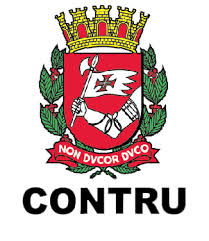
Operation Car Wash is on its way to becoming a pivotal moment in the political history of Brazil, decisively dismantling a political, judicial and economic model that flourished over the past four decades.
Starting with the financial liberalization of the 1970s, an enormous gray zone of banks in fiscal paradises sprouted up, fed with the proceeds of financial crimes, narcotraffic, the trafficking of persons, political corruption — an enormous archipelago of corruption from which investment banks, currency traders and offshore funds pontificated [on matters financial].
***
In this period, various forms of public corruption germinated, the crudest of which had always to do with tenders for public works and government spending.
More sophisticated schemes were practiced during the era of privatization, with the manipulation of municipal bonds, the exchange of privileged information on currency and tax rates as part of [“pump and dump”] operations in the stock market.
An ecosystem flourished in which all the political and governmental groups could feed their appetites. Denouncing these schemes only made the headlines in the service of opportunistic political games — all in all, a vast spectacle of hypocrisy.
***
The reaction to this trend had its beginnings in the central nations, with their anti-money laundering (AML) and corporate corruption laws.
In order to arrive at our own Operation Car Wash, we had to run a veritable obstacle course, with previous operations that were aborted by the powerful influence of special interests in all branches of the government — the executive, the judiciary, the legislative and the establishment media.
The congressional inquiry (CPI) of the Municipal Bonds ended in a cozy deal, as did the CPIs of Banestado, Satiagraha and Sand Castles, because they would have exposed politicians of all political parties, powerful corporate lobbies, and financiers.
***
The status quo changed little with the inauguration of Lula in 2003.
Major investment banks continued profiting from their participation in municipal fixed-income contracts, betting on new world champions, while the strategy of the PT was to assign its best operators to negotiate with the underworld behind the grandest business groups which, to date, had only opened its wallets for the PSDB.
***
Whether the needs of governability really required this strategy, future historians will have to say.
What is important is that Car Wash has broken the cycle of impunity under the current way of doing politics.
None of the major parties will escape this web of corruption. There is no room for opportunistic maneuvers. The leading figures of the PSDB are just as involved as the operators of the PT. The advent of the social networks has put an end to the heavy armor the party has reliably provided it.
I was shocked when I read that a Supreme Court Justice criticized by Nassif and the staff of Carta Capital had taken the time out of the official reading of his decision in the ratification of campaign accounts to personally assail Nassif.
I am an occasional Web interlocutor of Nassif — I have read his “The Spreadsheet Heads” and his series on the corruption of journalistic ethics at Veja magazine — but I have to say it: His site is a little unsightly and does not look like an A-list blog. It is mostly just another Ning community of the kind your local children’s soccer team might set up in 15 minutes. But it works.
And so it is a grand day here in Sambodia when the little boy tells his mother that the emperor wears no clothes. Your character, the character of your enemy, that sort of thing.
***
Here, then, some complex paradoxes arise.
If it is partial (partisan) and not complete, and if it permits opportunism, the results of the operation will be less trusted.
If it heats up the iron and investigates everyone, no matter who gets hurt, it will shut down national politics.
***
It is not up to prosecutors and police officials to define the limits of the Car Wash affair. It is the prerogative of political actors to offer ways out of the grandest political impasse in the democratic history of Brazil.
It is urgent that these proceedings result in radical proposals in election law, the criminal code, and the Constitution itself.
May the gods of wisdom guide attorney-general Geral Rodrigo Janot and his courageous team through the Car Wash case.

You can also read about Watch Dog Journalism in South America for a much more reasonable price.
Filed under: Banking and Brokerage, Books, Brazil, Business, Corruption, Finance, Foreign Trade, Global Custody, Investment Banking, Journalism, Media, Organized Crime, Publishing, Taxes | Leave a comment »













